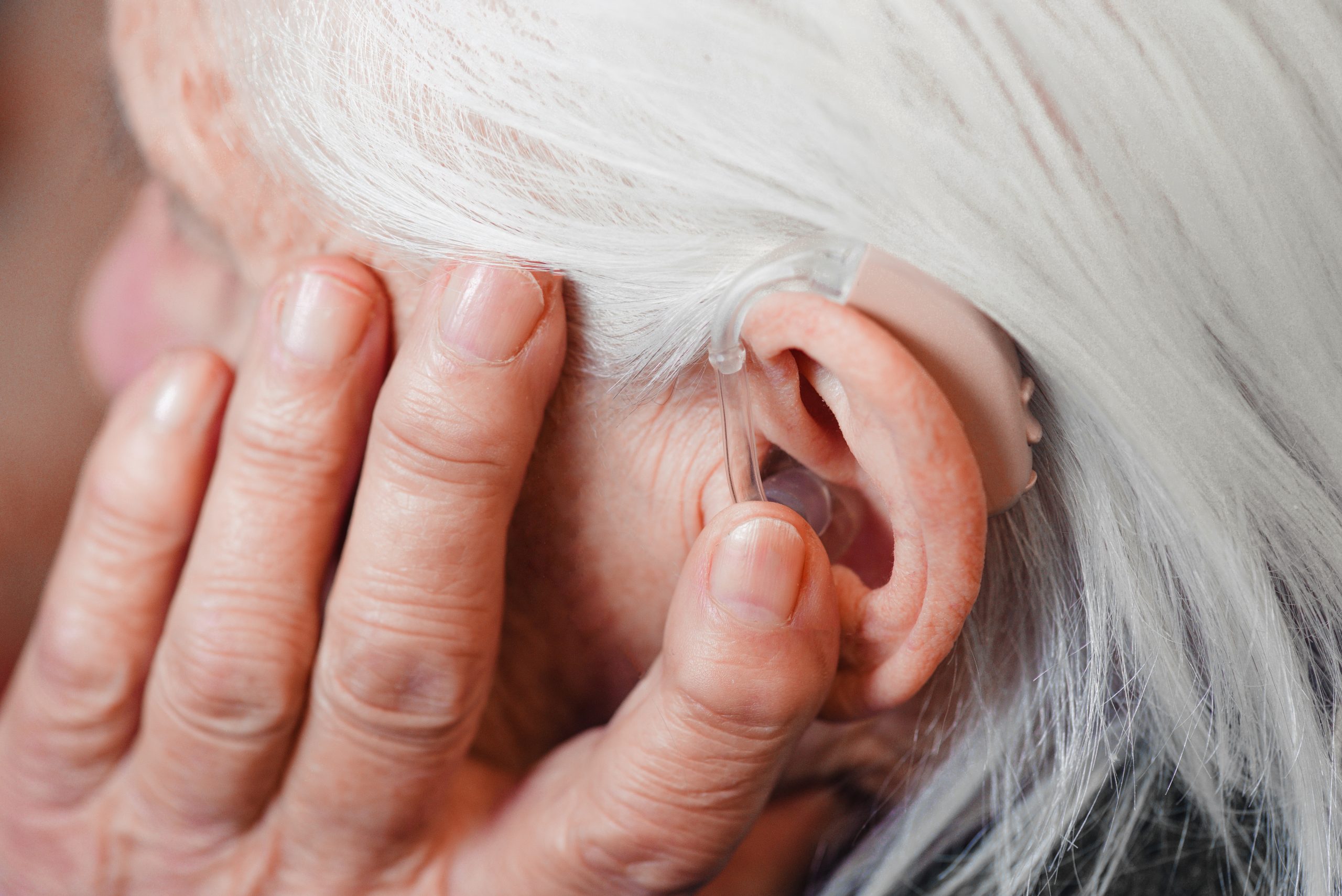Sylvia Pollack lost her ability to hear while she was young. But despite her disability, Sylvia went on to earn a Ph.D., raise a wonderful family, and become a published poet. Sylvia is one of a kind, but her condition is not. As we grow older, we gradually lose our sense of hearing. According to the John Hopkins University Hospital, one in three adults aged 65 and over suffers age-related hearing loss. The figure doubles as we cross the 75-year mark.
Here we’ll look at age-related hearing loss, what causes it, the symptoms, and how you can treat it. Like Sylvia, you can still enjoy life and live it to the full, despite having a hearing disability.
What is age-related hearing loss?
Age-related hearing loss is also known as Presbycusis. It is a condition where a person gradually loses the sense of hearing. It often affects both ears, and although it is not life-threatening, it can significantly affect the quality of life.
Most people cannot detect gradual deterioration of hearing. It is subtle and often begins with the inability to hear high-pitched sounds, like a phone ringing or a microwave oven beeping. You could also notice that you frequently turn up the volume of a radio or television. As the days go by, your sense of hearing becomes worse, significantly affecting your life.
Read on and learn what causes it, the tell-tell signs, what you should do, and how you can treat age-related hearing loss.
Presbycusis: the causes
There are many causes of age-related hearing loss. In most cases, injury, disease, strain, or deterioration of tissue in the following locations would result in the condition.
- The inner ear ( it is the most common cause)
- The middle ear
- The nerve pathways to the brain
Sustained exposure to loud noises (like music or machinery) could damage these sections of the ear. On the other hand, illnesses, hereditary factors, or strain could lead to the loss of the receptor hair cells in the inner ear and cause hearing loss. Other factors that affect the ears include medicines – side effects of medication like aspirin, some antibiotics, and some chemotherapy drugs. Some conditions like heart disease and diabetes can also cause age-related hearing loss.
What are the tell-tell signs?
The most obvious symptom is difficulty in hearing. At first, you may (or may not) notice that you no longer hear high-pitched sounds like the beeping of a microwave oven, female voices, or children. Background sounds are also hard to hear, and you often ask people to repeat what they have said.
Other symptoms may include:
- High sensitivity to certain sounds – they seem overly loud.
- Having difficulty hearing in environments with moderate noise, like in a restaurant.
- Ringing sound in the ears.
- Turning up the volume on the radio or television
If you experience these symptoms, reach out to a doctor for help. It could be age-related hearing loss or another health condition.
What should you do if you have trouble hearing – diagnosis
If you experience the symptoms of age-related hearing loss, see a doctor to diagnose the condition.
The doctor will first perform a full assessment to rule out other ailments and other causes of hearing loss. The doctor could also examine your inner ears using an otoscope. If there are no other causes, they will diagnose you with age-related hearing loss. In some cases, the doctor could refer you to an ear, nose, and throat (ENT) specialist, also known as an otolaryngologist, for further testing.
Treatment
Unfortunately, modern medicine has no cure for age-related hearing loss. But that does not mean it is not treatable. Your doctor can recommend devices to boost your sense of hearing and alternative methods to communicate.
Life may not get back to what it used to be like, but there is a whole new world to explore, and you can make it fun.
Your doctor could recommend hearing aids – small electronic devices worn behind the ear to amplify sounds. Make sure to ask their advice on the best hearing aids for you and shop around. There are lots of popular hearing aid brands available today; if you’re looking for rechargeable hearing aids, check out Nano hearing aids reviews. Walmart actually has recently released their own brand of hearing aids, and Bose hearing aids are also popular.
Your doctor could also recommend telephone amplifiers or even lessons in sign language. In severe cases, the doctor may recommend surgery and place a cochlear implant in the inner ear.
A closing word on age or age-related hearing loss
Although it is not a life-threatening condition, loss of hearing can significantly affect your life. If you have the symptoms, plan to consult the doctor and get help. However, be ready to foot the bills. Medicare does not cover hearing aids or exams for fitting hearing aids, but you could consider using proceeds from your life insurance policy to foot the bills.
About Abacus Life
Abacus Life Settlements has been a leading buyer of life insurance policies in the U.S for the last 16+ years. With over 10$ billion in policy face value purchased, we have helped thousands of clients maximize the value of their life insurance. We provide white-glove services to financial advisors and policy owners. Want to learn about the true value of your Policy? Check out our Market Value Calculator to get a free estimate.





